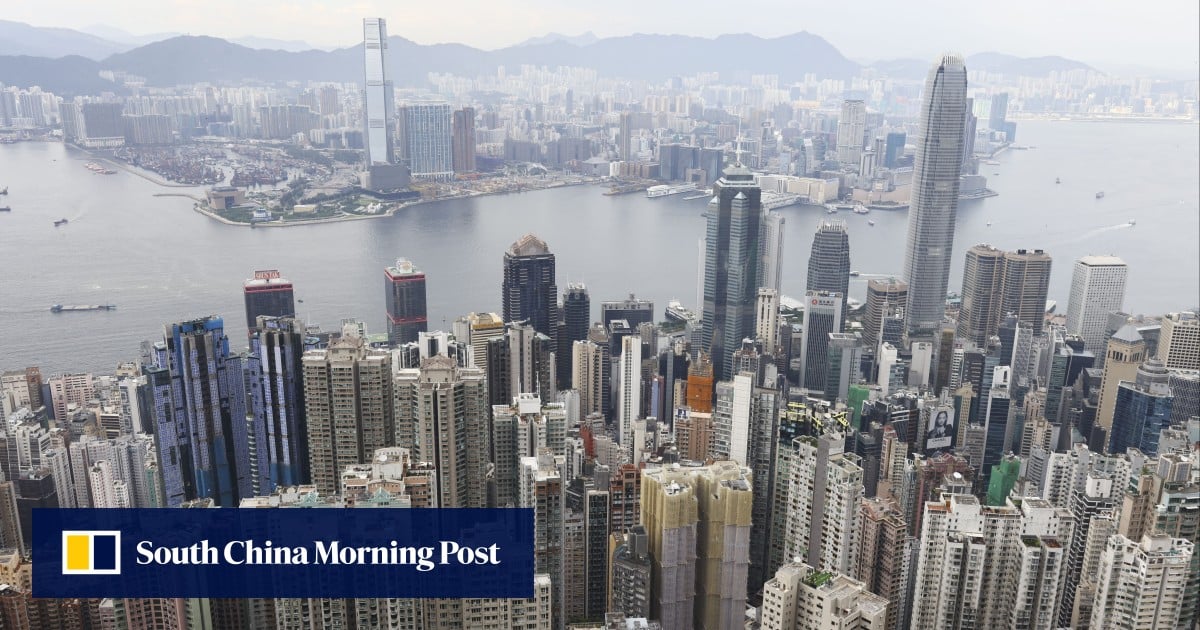World
EU set to roll out world’s first AI regulation after 35-hour talks

Member states and the European Parliament have reached a preliminary deal on the Artificial Intelligence Act, the world’s first attempt to regulate the fast-evolving technology in a comprehensive, ethics-based manner.
The agreement was struck at the political level on Friday night after talks that occupied the entire day and followed an unsuccessful marathon between Wednesday and Thursday afternoon. In total, the entire push took more than 35 hours.
The breakthrough came amid aggressive lobbying from tech companies of all sizes, stark warnings from civil society and intense media scrutiny as the legislation from Brussels could very well influence similar regulatory efforts across the world.
“Historic! The EU becomes the very first continent to set clear rules for the use of AI,” said Thierry Breton, the European Commissioner for the internal market who took part in the debate. “The AI Act is much more than a rulebook – it’s a launchpad for EU startups and researchers to lead the global AI race.”
The negotiations were a hard-fought back-and-forth between governments and lawmakers over a string of highly complex and technical issues.
Having sealed on Thursday a tentative compromise to rein in the foundation models that power chatbots like OpenAI’s ChatGPT, Friday’s talks had a strong focus on the use of real-time biometrics, including facial recognition, in public spaces.
At the core of the debate was the question of whether state authorities should be allowed to deploy AI-powered biometric systems that can identify and categorise people based on sensitive characteristics such as gender, race, ethnicity, religion and political affiliation, as well as systems of emotion recognition and predictive policy.
In their joint mandate, MEPs said these practices were “intrusive and discriminatory” and therefore should be prohibited across EU territory. Member states, though, had quite a different opinion and argued exceptions for law enforcement were necessary to track down criminals and thwart threats against national security. France approved earlier this year legislation to enable the use of biometric surveillance during the 2024 Paris Olympics and Paralympics, a first for an EU country.
The clash between national security and fundamental rights absorbed most of the energy on Friday. Spain, the current holder of the Council’s rotating presidency, had the hard task of representing the 27 member states and keeping a united front.
Talks were interrupted by a protracted recess where lawmakers discussed among themselves the demands made by the Spanish presidency. Meanwhile, scholars and activists took to social media to urge MEPs to resist the exemptions for law enforcement.
In the end, the Parliament relented and signed up to a series of “strict conditions” that will allow authorities to use real-time biometrics to search for victims of abduction, trafficking and sexual exploitation; prevent terrorist threats; and locate people suspected of having committed serious crimes, such as terrorism, murder, rape and armed robbery.
By contrast, biometric categorisation based on sensitive characteristic, social scoring, predictive policing, the exploitation of vulnerabilities and emotion recognition in the workplace and educational institutions will be prohibited.
“We fought hard for the ban on biometric identification,” said Brando Benifei, a socialist MEP who served as co-rapporteur. “It was important to bring all these pieces together.”
“All these things are a very strong regime that say what kind of uses of AI we don’t want in our Union and in our market,” said Dragoș Tudorache, the other co-rapporteur.
Given the complexity of the issue at hand, the compromise that emerged from the drawn-out talks is likely to require further fine-tuning in the coming days. Carme Artigas, Spain’s secretary of state for digitalisation and AI, insistedthat “every article” had been agreed-upon, without leaving any “loopholes” to circumvent respect of human rights.
Once the legal text, which covers hundreds of pages in articles and annexes, is rewritten, it will be sent to the European Parliament for a new vote in the hemicycle, followed by the green light by the countries in the Council.
“We’re hopeful that all (member states) will confirm” the compromise, Artigas said, when asked about the concerns raised by Germany and France.
The final votes are expected to take place in early 2024. The law will then have a gradual period before it becomes fully applicable.
An ever-evolving technology
First presented in April 2021, the AI Act is a ground-breaking attempt to ensure the most radically transformative technology of the 21st century is developed in a human-centric, ethically responsible manner that prevents and contains its most harmful consequences.
The Act is essentially a product safety regulation that imposes a staggered set of rules that companies need to follow before offering their services to consumers anywhere across the bloc’s single market.
The law proposes a pyramid-like structure that splits AI-powered products into four main categories according to the potential risk they pose to the safety of citizens and their fundamental rights: minimal, limited, high and unacceptable.
Those that fall under the minimal risk category will be freed from additional rules, while those labelled as limited risk will have to follow basic transparency obligations.
The systems considered high risk will be subject to stringent rules that will apply before they enter the EU market and throughout their lifetime, including substantial updates. This group will encompass applications that have a direct and potentially life-changing impact on private citizens, such as CV-sorting software for job interviews, robot-assisted surgery and exam-scoring programmes in universities.
High-risk AI products will have to undergo a conformity assessment, be registered in an EU database, sign a declaration of conformity and carry the CE marking – all before they get to consumers. Once they become available, they will be under the oversight of national authorities, aided by a dedicate AI office inside the European Commission.
AI systems with an unacceptable risk for society, including social-scoring to control citizens and applications that exploit socio-economic vulnerabilities, will be outright banned across all EU territory.
Under the preliminary deal, companies that violate the rules will face multi-million fines of up €35 million or 7% of global turnover.
Although this risk-based approach was well received back in 2021, it came under extraordinary pressure in late 2022, when OpenAI launched ChatGPT and unleashed a global furore over chatbots. ChatGPT was soon followed by Google’s Bard, Microsoft’s Bing Chat and, most recently, Amazon’s Q.
Chatbots are powered by foundation models, which are trained with vast troves of data, such as text, images, music, speech and code, to fulfil a wide and fluid set of tasks that can change over time, rather than having a specific, unmodifiable purpose.
The Commission’s original proposal did not introduce any provisions for foundation models, forcing lawmakers to add an entirely new article with an extensive list of obligations to ensure these systems respect fundamental rights, are energy efficient and comply with transparency requirements by disclosing their content is AI-generated.
This push from Parliament was met with scepticism from member states, who tend to prefer a soft-touch approach to law-making. Germany, France and Italy, the bloc’s three biggest economies, came forward with a counter-proposal that favoured “mandatory self-regulation through codes of conduct” for foundation models. The move sparked an angry reaction from lawmakers and threatened to derail the legislative process.
But the daunting prospect of thrusting the landmark law into limbo in the lead-up to next year’s European elections acted as a motivation to bridge the gaps and strike a preliminary deal, which now foresees transparency requirements for chatbots to ensure users are aware they interact with an AI-powered system.
“The AI Act is a global first,” said Ursula von der Leyen, the president of the European Commission. “A unique legal framework for the development of AI you can trust. And for the safety and fundamental rights of people and businesses. A commitment we took in our political guidelines – and we delivered.”
This article has been updated with more information about the political deal.

World
New Russia sanctions target weapons development and countries assisting in sanctions evasion
WASHINGTON (AP) — The U.S. on Wednesday imposed new sanctions on hundreds of firms and people tied to Russia’s weapons development program, more than a dozen Chinese firms accused of helping Russia find workarounds to sanctions and individuals tied to the death of Russian dissident Alexey Navalny.
The sanctions imposed by the Treasury and State departments target Russia’s military-industrial base, chemical weapons programs and people and firms in third countries that help Russia acquire weapons components as its invasion of Ukraine has entered its third year.
Treasury Secretary Janet Yellen said the action “will further disrupt and degrade Russia’s war efforts by going after its military industrial base and the evasion networks that help supply it.”
The sanctions come as the Senate gave final approval to legislation barring imports of Russian uranium, boosting U.S. efforts to disrupt Russia’s war in Ukraine. President Joe Biden is expected to sign the bill into law.
About 12% of the uranium used to produce electricity at U.S. nuclear power plants is imported from Russia, according to the U.S. Energy Information Administration.
A spokesperson for the National Security Council said Wednesday that Biden, a Democrat, shares lawmakers’ concerns about U.S. reliance on Russia for low-enriched uranium to support its domestic nuclear fleet.
Included in Wednesday’s sanctions announcement are importers of cotton cellulose and nitrocellulose — used to produce gunpowder, rocket propellants and other explosives. Also included are Russian government entities and people tied to Russia’s chemical and biological weapons programs and firms related to Russia’s natural gas construction projects.
Russian President Vladimir Putin has repeatedly railed against several rounds of U.S. and Western sanctions, claiming last year that they are “illegitimate sanctions” on his country.
A group of 16 targets in China and Hong Kong, most of which are related to Russian procurement workarounds, are also included in the latest sanctions announcement.
Firms in countries including China, Azerbaijan, Belgium, Slovakia, Turkey and the United Arab Emirates are accused of helping Russia acquire technology and equipment from abroad. The penalties aim to block them from using the U.S. financial system and bar American citizens from dealing with them.
The sanctions come after Biden last week said he would immediately rush badly needed weaponry to Ukraine as he signed into law a $95 billion war aid measure that also included assistance for Israel, Taiwan and other global hot spots.
Yellen said with the sanctions and supplemental funding combined, “our support for Ukraine and our relentless targeting of Russia’s military capacity is giving Ukraine a critical leg-up on the battlefield.”
World
Indonesia’s Ruang volcano spits more hot ash after eruption forces schools and airports to close

Indonesia’s Mount Ruang volcano spewed more hot clouds on Wednesday after an eruption the previous day forced the closure of schools and airports, pelted villages with volcanic debris and prompted hundreds of people to flee.
Seven airports, including Sam Ratulangi international airport in Manado, the capital of North Sulawesi province, remained closed after Tuesday’s eruption, the second in two weeks. Schools were shut to protect children from volcanic ash.
The volcano is on tiny Ruang Island, part of the Sitaro islands chain.
VIDEO SHOWS LIGHTNING SHOOTING FROM TOXIC ASH CLOUD DURING POWERFUL VOLCANIC ERUPTION IN INDONESIA
The Indonesian geological agency urged people to stay at least 4 miles from the volcano’s crater. It warned people on nearby Tagulandang Island, the closest to the volcano, of possible super-heated volcanic clouds from a further eruption and a tsunami if the mountain’s volcanic dome collapses into the sea.
Mount Ruang releases volcanic materials during its eruption on April 30, 2024, on Sulawesi Island, Indonesia. The volcano erupted on April 30 for a second time in two weeks, spewing ash more than a mile into the sky, forcing an airport to close and peppering nearby villages with debris. (Vulcanology and Geological Disaster Mitigation Center via AP Photo)
Video released by the National Search and Rescue Agency showed about a hundred villagers from Tagulandang Island being evacuated on a navy ship. Hundreds of others were waiting at a local port to be evacuated.
Agency spokesperson Abdul Muhari said 11,000 to 12,000 people living within a 4-mile danger zone would be taken to government shelters.
Tuesday’s eruption darkened the sky and peppered several villages with ash, grit and rocks. No casualties were reported.
After Mount Ruang’s April 17 eruption, authorities warned that a subsequent eruption might collapse part of the volcano into the sea.
Ruang is among about 130 active volcanoes in Indonesia. The archipelagic nation is prone to volcanic eruptions and earthquakes because of its location on the Pacific “Ring of Fire,” a series of fault lines stretching from the western coast of the Americas through Japan and Southeast Asia.
World
Turkish police arrest hundreds at Istanbul May Day protests

Authorities deployed more than 40,000 police officers across the city after banning protests in Taksim Square.
Police in Istanbul have used tear gas and rubber bullets to disperse protesters who tried to break through a barricade to reach the city’s Taksim Square in defiance of a ban on May Day rallies.
Turkish Interior Minister Ali Yerlikaya said 210 people were arrested on Wednesday.
More than 40,000 police were deployed across the city, blocking even small side streets with metal barriers after President Recep Tayyip Erdogan said on the eve of May Day that the annual protests would not be allowed to take place in the square.
Tall metal barriers were put up around the square – a traditional focal point of protests in Istanbul, where authorities have banned rallies since 2013, when it was the focus of demonstrations against Erdogan’s government.
On X, Yerlik said that “210 people were detained in Istanbul after failure to heed our warnings and attempting to walk to the Taksim Square and attack our police officers on May 1 Labour and Solidarity Day.”
Police clashed with demonstrators near city hall in the Sarachane district, firing tear gas and rubber bullets to stop protesters from breaching barricades, the AFP news agency reported.
“We have demonstrated our will to celebrate May Day at Taksim Square. We have legal grounds,” Arzu Cerkezoglu, secretary general of the Confederation of Revolutionary Trade Unions of Turkey (DISK), told AFP.
“Taksim is an important symbol for us. Taksim means May Day, Taksim means labour,” she said.
In 2023, Turkey’s top constitutional court ruled that the closure of Taksim Square for protests was a violation of citizens’ rights. The square was a rallying ground for May Day celebrations until 1977, when at least 34 people were killed during demonstrations. Authorities opened it up again in 2010, but it was shut again after the 2013 protests.
City locked down
Main roads across Istanbul were closed to traffic while public transport including ferries and subway trains was halted because of the security clampdown. Landmarks such as the Topkapi Palace were cordoned off.
On Monday, Yerlikaya said Taksim would be out of bounds for rallies to stop “terrorist organisations” from using it for “propaganda”.
Turkey’s main opposition Republican People’s Party (CHP) and unions had pressed the government to open the square for labour rallies, but Erdogan warned on Tuesday against any provocation.
CHP leader Ozgur Ozel, accompanied by Istanbul’s Mayor Ekrem Imamoglu and labour unions, gathered in the Sarachane neighbourhood.
“We will keep on fighting until Taksim is free,” Ozel said. “Taksim belongs to the workers.”
Addressing the police, Ozel declared: “These workers are not your enemies. Our only desire is for the day to be celebrated as a festival. We do not want conflict.”
-

 Education1 week ago
Education1 week agoVideo: Dozens of Yale Students Arrested as Campus Protests Spread
-

 News7 days ago
News7 days agoLarry Webb’s deathbed confession solves 2000 cold case murder of Susan and Natasha Carter, 10, whose remains were found hours after he died
-

 World6 days ago
World6 days agoHaiti Prime Minister Ariel Henry resigns, transitional council takes power
-

 Politics1 week ago
Politics1 week agoFetterman hammers 'a–hole' anti-Israel protesters, slams own party for response to Iranian attack: 'Crazy'
-

 World1 week ago
World1 week agoPeriod poverty still a problem within the EU despite tax breaks
-

 World7 days ago
World7 days agoUS secretly sent long-range ATACMS weapons to Ukraine
-

 News6 days ago
News6 days agoFirst cargo ship passes through new channel since Baltimore bridge collapse
-

 World1 week ago
World1 week agoTurkey’s Erdogan meets Iraq PM for talks on water, security and trade



















